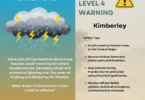PALESTINE UPDATES.
While Benjamin Netanyahu has managed to stay in power to this point, corruption charges and his repeated failure to form a stable and reliable coalition government appeared to signal the end of his reign.
However, the newly erupted conflict with the Palestinians may have opened yet another path for Netanyahu and his quest to remain Israel’s longest-serving prime minister, analysts say.
Qatari Red Crescent’s Gaza office targeted by Israeli air attackBiden expresses support for Gaza ceasefire amid mounting pressureIsrael’s barrage of air strikes resumes, toppling buildings: LiveThe utter failure of the Abraham Accords
The Israeli leader and his Likud party failed to form a governing coalition and President Reuven Rivlin has tasked opposition leader Yair Lapid to form a government of his own.
Even prior to the election, Netanyahu lost the support of the Israeli people for various reasons, according to Micheline Ishay, director of the human rights programme at the University of Denver.
“Netanyahu’s popularity has waned and the people are tired of inconclusive elections. Likud dropped from 36 seats in March 2020 to 30 in March 2021,” Ishay told Al Jazeera. “Netanyahu’s relentless efforts to avoid prosecution, the split of right-wing parties, and a lingering pandemic have contributed to widespread disenchantment.”
But the conflict with the Palestinians has decreased public resentment against Netanyahu, she added.
“His popularity will undoubtedly rise among some citizens as a result of this escalation with Gaza. Under fire and in war situations, people tend to rally behind the existing government, fearing both rockets and internal threats. In this sense the current crisis is strengthening Netanyahu’s political designs,”
Nonetheless, Ishay said she does not believe that Netanyahu supported the conflict out of political calculation, despite the apparent link to violence against the Palestinians.
“Netanyahu allowed, even nurtured, domestic provocations through the Kahanists in Jerusalem, the planned confiscation of Arab property in Sheikh Jarrah, the fencing off of the Damascus Gate during Ramadan, and the police action at Al-Aqsa.
“However, it is unclear that he would have anticipated, let alone wished for, the response from Hamas. Irrespective of intention, the war benefits both Hamas and the Likud, at least in the short term,” Ishay added.
However, it is not merely public perception that the conflict might have shifted in Netanyahu’s favour over these past days.
For one, a broad coalition against Netanyahu, as Yesh Atid had hoped for, became more uncertain than ever once Naftali Bennett stated his Yamina party would cease talks with Lapid and seek a broader unity government with Netanyahu and Likud instead. It was in the country’s interest in times of crisis, Bennett opined.
The sudden reconciliation between Netanyahu and Bennett may come as a surprise but make sense politically.
After all, Netanyahu and Bennett share an ideology, and both had advocated for the unilateral annexation of portions of the West Bank, Ishay said, while the implications are beneficial for the prime minister.
“By prioritizing his perceptions of national threats over his political differences with Netanyahu, Bennett could revive the Likud coalition and greatly weaken any anti-Netanyahu bloc,” said Ishay.

However, Bennett was also cognizant of how the current crises impacted negotiations that were advanced to the point that ministerial posts had already been allocated in the “change bloc“.
To obtain the necessary majority, the coalition needed to include the votes of Palestinian citizens of Israel in the Knesset. In view of the unrest between Israeli Jews and Palestinian citizens of Israel, such a scenario has become inconceivable, with both Arab parties essentially being put in a position in which they cannot support an Israeli government that includes right-wing forces.
The primary example is Mansour Abbas, leader of the United Arab List (UAL), who had agreed to support the government of Lapid and Bennett. Given the armed conflict in Gaza, however, UAL withdrew from the coalition talks.
Bennett’s call for the deployment of the Israeli army in places inhabited by Palestinians in Israel made it impossible for the United Arab List, also known as Raam, to support this policy, noted Ishay.
“Bennett apparently suggested that the Israeli Defense Force actions against Gaza and police enforcement against Palestinian unrest could not be directed by a government that included the Arab Joint List. This suggests that Arab Israelis can never be part of a government except during peace,” she said.













